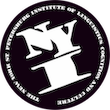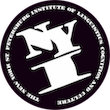
8. Thursday, January 18: "Towards Afrikaaps Decolonial Communication practices: mapping non-racial linguistic futures"
In this talk, I discuss the non-racial future of Afrikaaps (also known as Kaaps), an African ‘language’ that became the slave lingua franca of the indentured indigenous, enslaved populations and Khoi in the settler Cape Colony. Formed out of Cape Dutch Afrikaaps was creolised first through a mixture of (Low and High) Portuguese, Indonesian (such as Malay, Singhalese), and Khoi phono-/lexical-/syntactic-variations, and later it was further heavily influenced by Arabic, standard Afrikaans and English.
I begin the lecture by presenting three brief overview sections that begins with a discussion of the 17th century life of the first slaves who spoke and wrote in Afrikaaps, pointing to the creole life and roots of this language at the formation of Cape Dutch from 1652 to 1790. I then demonstrate how from the 1800 to 1900s Afrikaaps developed in writing as a “tussen taal” (in-between language) and later as a ‘language of resistance’. I follow on to discuss how for much of the 1960s to 1980s, Afrikaaps writers came to resist apartheid govermentality and racism by expressing liberation through forms of Afrikaaps protest writing (amongst other forms of protest and activism). In each historical phase, I point to concerted linguistic attempts to move away from colonial and apartheid communication practices, and towards what can be understood in a post-apartheid, non-racial South Africa as Afrikaaps decolonial communication practices (following Veronelli, 2016). In respect of the latter, I ask: what do we mean when we talk about Afrikaaps decolonial communication practices? I answer this question by reflecting on and analysing three research projects that seek to empower Afrikaaps speakers today: (1) the development of the first trilingual dictionary of Afrikaaps, (2) Afrikaaps bilingual learning materials, and (3) considerations for a descriptive grammar, orthography and standardization of Afrikaaps.
I conclude the talk by reflecting on the non-racial pitfalls of decolonial liberation work for Afrikaaps and its speakers. I also provide a number of conclusions on whether, and if it all, the development of a full Afrikaaps grammar, dictionary, orthography and educational materials are the necessary decolonial infrastructures to map a non-racial future of liberation and successfully challenge the binaries inherent in the remains of colonial and apartheid communication practices.
References
Veronelli, G. 2016. A Coalitional Approach to theorizing decolonial communication. Hypatia. 31(2): 401-520.

